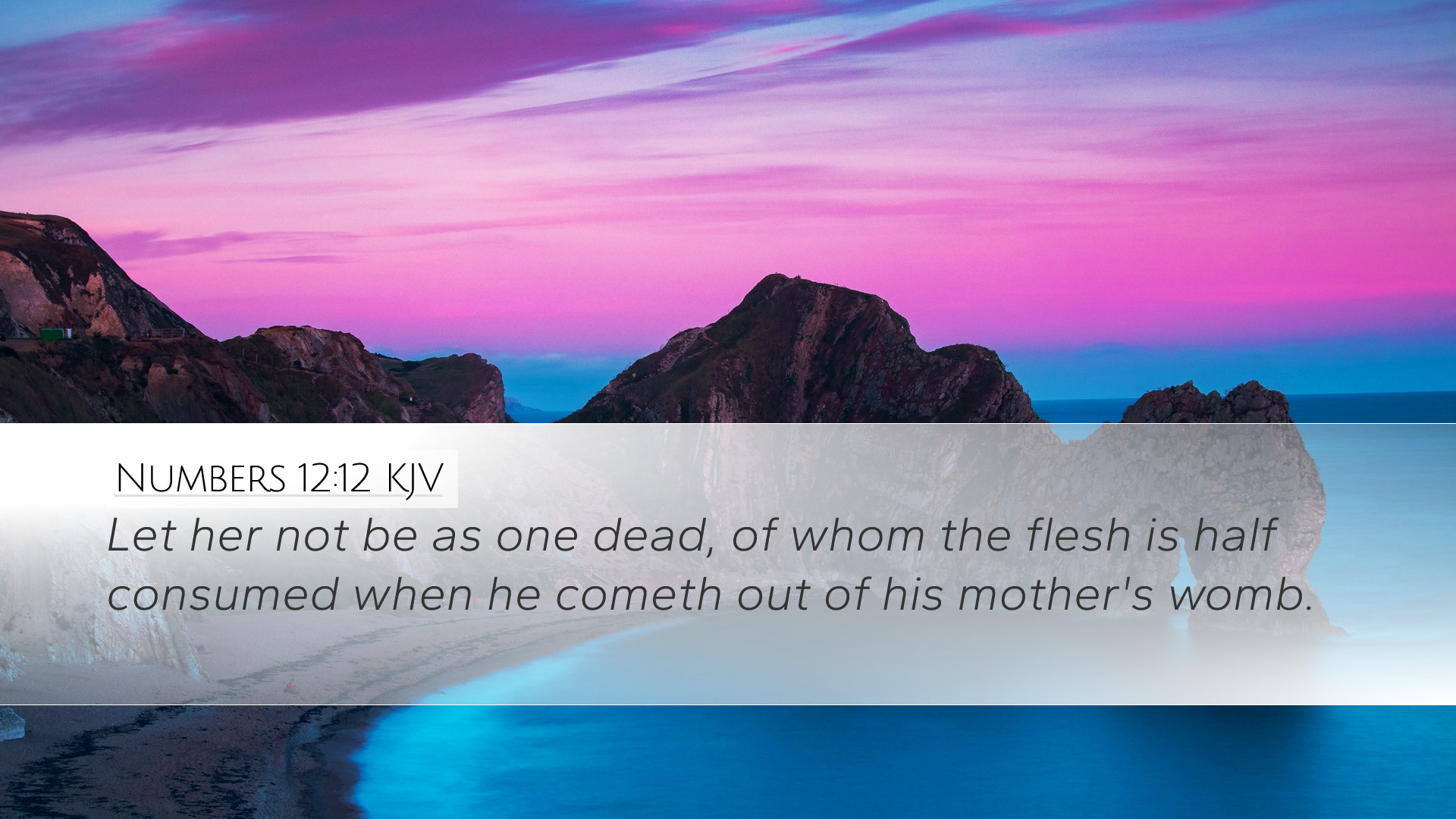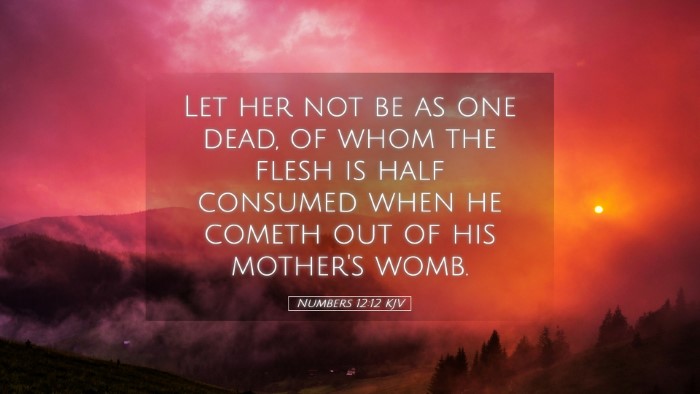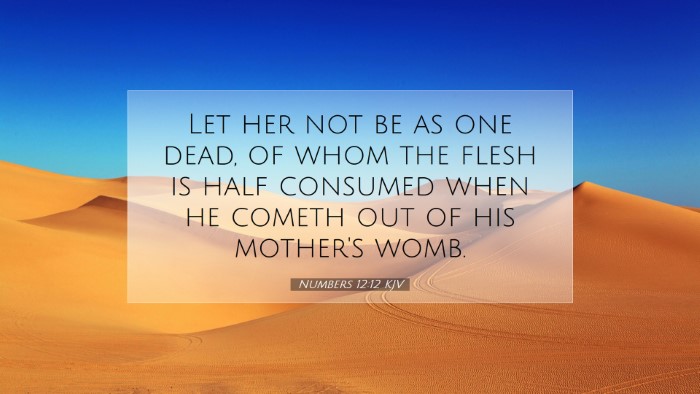Commentary on Numbers 12:12
Numbers 12:12 states: "Let her not be as one dead, of whom the flesh is half consumed when he cometh out of his mother's womb." This verse forms part of the narrative detailing the incident involving Miriam and Aaron's opposition to Moses, and serves as a poignant moment of divine intervention and instruction.
Contextual Background
Miriam and Aaron spoke against Moses due to his Cushite wife, which was seen as a challenge to his authority as leader and prophet. This incident reveals underlying issues of jealousy, competition, and familial criticism. The Lord’s response underscores the seriousness of speaking against His chosen servant.
Interpretative Insights
Divine Displeasure and Human Fragility
Matthew Henry notes how this statement serves as a warning about divine judgment. In comparing Miriam's condition to that of a stillborn child, the essence of God's displeasure becomes evident. The metaphor reflects the severe consequences of sin and rebellion against God's appointed authority.
Miriam's Silence and Vulnerability
Albert Barnes emphasizes Miriam’s vulnerable state post-judgment, highlighting how her leprosy marks her as 'unclean' both physically and spiritually. This isolation serves as a powerful admonition about the dangers of improper speech and attitudes towards God's anointed leaders. The mention of "one dead" indicates not only a physical state but also a spiritual death that arises from pride and disobedience.
The Role of Intercession
Adam Clarke expounds upon the significance of Moses' subsequent prayer for Miriam. Moses, who himself faced unjust criticism, does not retaliate; rather, he intercedes in her behalf. This act of grace underlines the importance of prayer and compassion, even toward those who may wrong us. Clarke suggests that true leadership is characterized by forgiveness and the desire for restoration.
Theological Implications
Authority and Accountability
In the broader context of scripture, Numbers 12:12 serves as an illustration of the principle that with authority comes accountability. Those who serve in positions of spiritual leadership are scrutinized under God's eye, and their actions have profound implications not only for themselves but for those they lead. Both Henry and Barnes assert that God's swift response reflects His commitment to uphold His appointed leaders.
The Warning Against Jealousy
The narrative warns of the destructive nature of jealousy and self-exaltation among God’s people. In the case of Miriam and Aaron, their motivations stemmed from jealousy of Moses’ unique relationship with God. The tragic outcome of Miriam's temporary leprosy calls all believers to humility and a focus on God's calling rather than personal grievances.
Practical Applications for Ministry
Encouragement for Leaders
This passage is rich with encouragement for those in leadership. It reminds leaders to remain humble and reliant on God during times of criticism. The necessity of prayerful intercession for others is emphasized, illustrating how leaders can reflect God’s grace in their responses to conflict.
Community Dynamics
For church communities, the implications extend to a call for unity and mutual respect. Pastors and congregants alike must guard against gossip and misjudgments, understanding the deep ramifications such actions can lead to. The serious tone of the warning should instigate a culture of accountability born from love.
Conclusion
Numbers 12:12 encapsulates a critical teaching moment within scripture. The intense metaphor serves as a compelling reminder of the spiritual and physical consequences of impugning God's authority. The narrative calls believers to a place of repentance, humility, and deeper intercessory prayer. As such, it remains a rich text for reflection and application in both personal and communal contexts.


